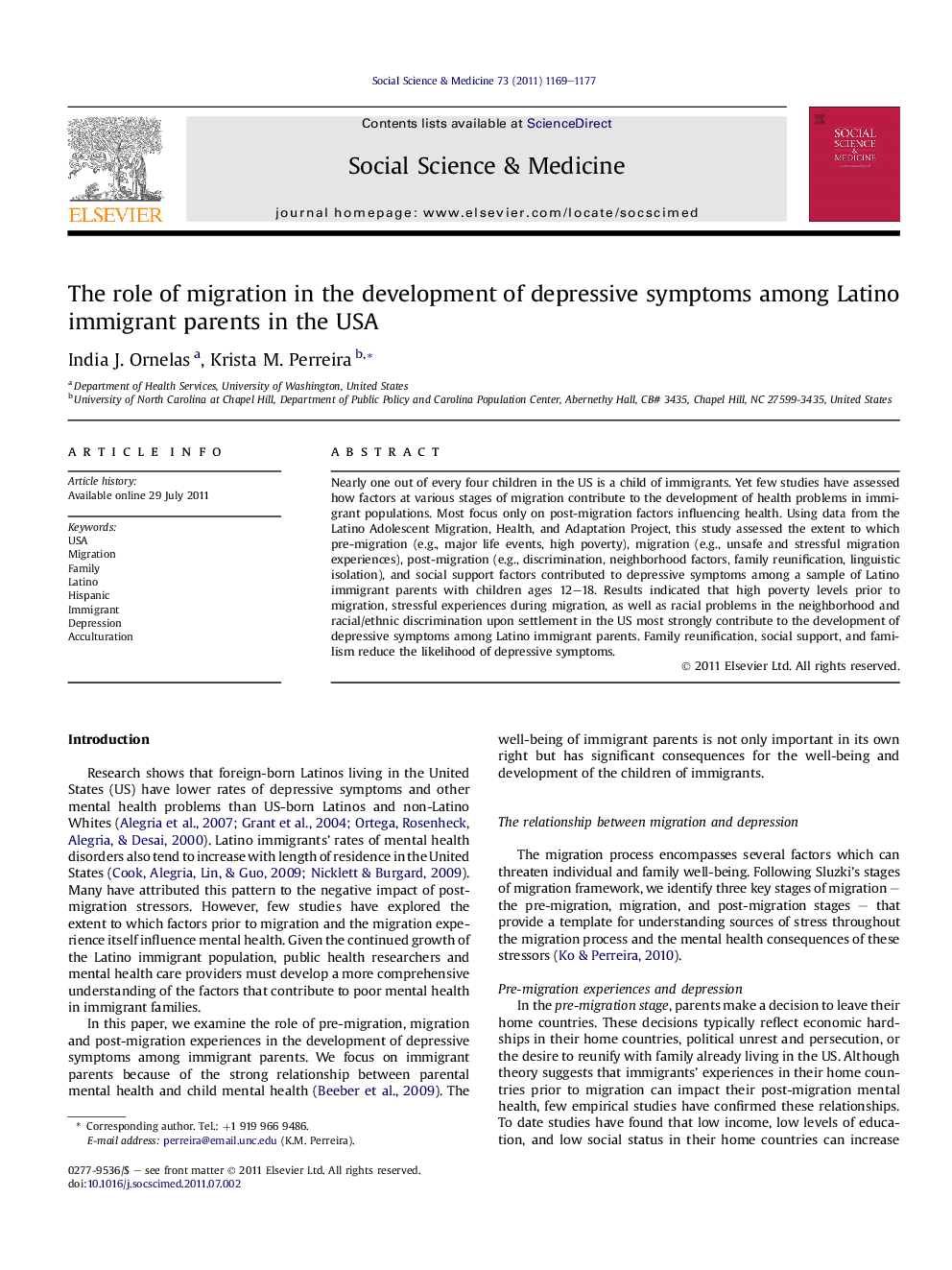| Article ID | Journal | Published Year | Pages | File Type |
|---|---|---|---|---|
| 952855 | Social Science & Medicine | 2011 | 9 Pages |
Nearly one out of every four children in the US is a child of immigrants. Yet few studies have assessed how factors at various stages of migration contribute to the development of health problems in immigrant populations. Most focus only on post-migration factors influencing health. Using data from the Latino Adolescent Migration, Health, and Adaptation Project, this study assessed the extent to which pre-migration (e.g., major life events, high poverty), migration (e.g., unsafe and stressful migration experiences), post-migration (e.g., discrimination, neighborhood factors, family reunification, linguistic isolation), and social support factors contributed to depressive symptoms among a sample of Latino immigrant parents with children ages 12–18. Results indicated that high poverty levels prior to migration, stressful experiences during migration, as well as racial problems in the neighborhood and racial/ethnic discrimination upon settlement in the US most strongly contribute to the development of depressive symptoms among Latino immigrant parents. Family reunification, social support, and familism reduce the likelihood of depressive symptoms.
► Few studies have assessed how factors at various stages of migration contribute to the development of health problems in immigrant populations. ► We demonstrate how factors prior to, during, and after migration contribute to the development of depressive symptoms. ► High poverty levels prior to migration strongly contribute to the development of depressive symptoms. ► Stress and trauma during migration and discrimination upon settlement further contribute to depressive symptoms. ► Family reunification, social support, and familism reduce the likelihood of depressive symptoms.
